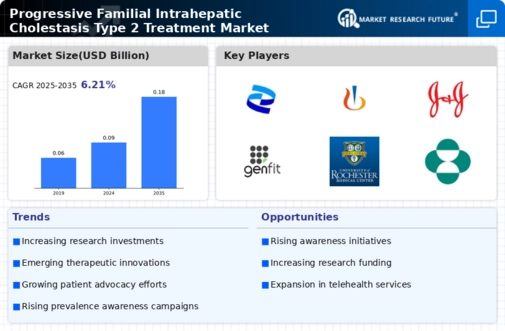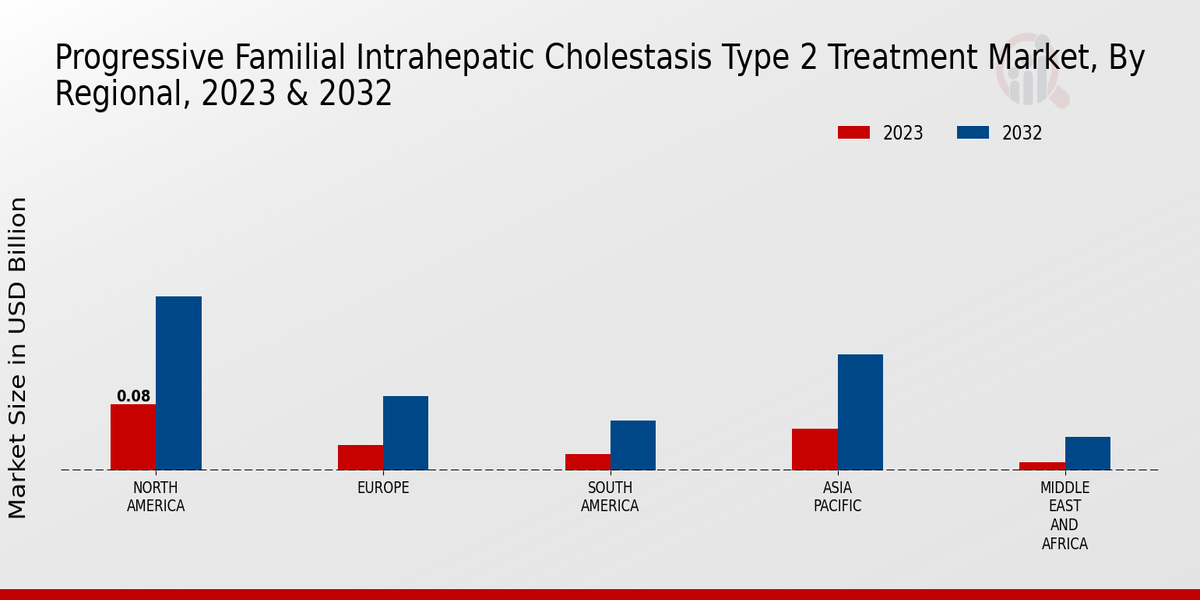Progressive Familial Intrahepatic Cholestasis Type 2 Treatment Market Summary
The Global Progressive Familial Intrahepatic Cholestasis Type 2 Treatment Market is projected to grow from 0.09 USD Billion in 2024 to 0.17 USD Billion by 2035.
Key Market Trends & Highlights
Progressive Familial Intrahepatic Cholestasis Type 2 Treatment Key Trends and Highlights
- The market is expected to achieve a compound annual growth rate of 6.49 percent from 2025 to 2035.
- By 2035, the market valuation is anticipated to reach 0.18 USD Billion, indicating robust growth potential.
- in 2024, the market is valued at 0.09 USD Billion, reflecting the current demand for treatment options.
- Growing adoption of innovative therapies due to increasing awareness of Progressive Familial Intrahepatic Cholestasis Type 2 is a major market driver.
Market Size & Forecast
| 2024 Market Size | 0.09 (USD Billion) |
| 2035 Market Size | 0.17 (USD Billion) |
| CAGR (2025-2035) | 6.21% |
Major Players
Pfizer, Novartis, Johnson Johnson, Genfit, Roche, Merck, Intercept Pharmaceuticals, GlaxoSmithKline, Bristol Myers Squibb, Eli Lilly, Albireo Pharma, Madrigal Pharmaceuticals, Bayer, BridgeBio Pharma, Mirum Pharmaceuticals























